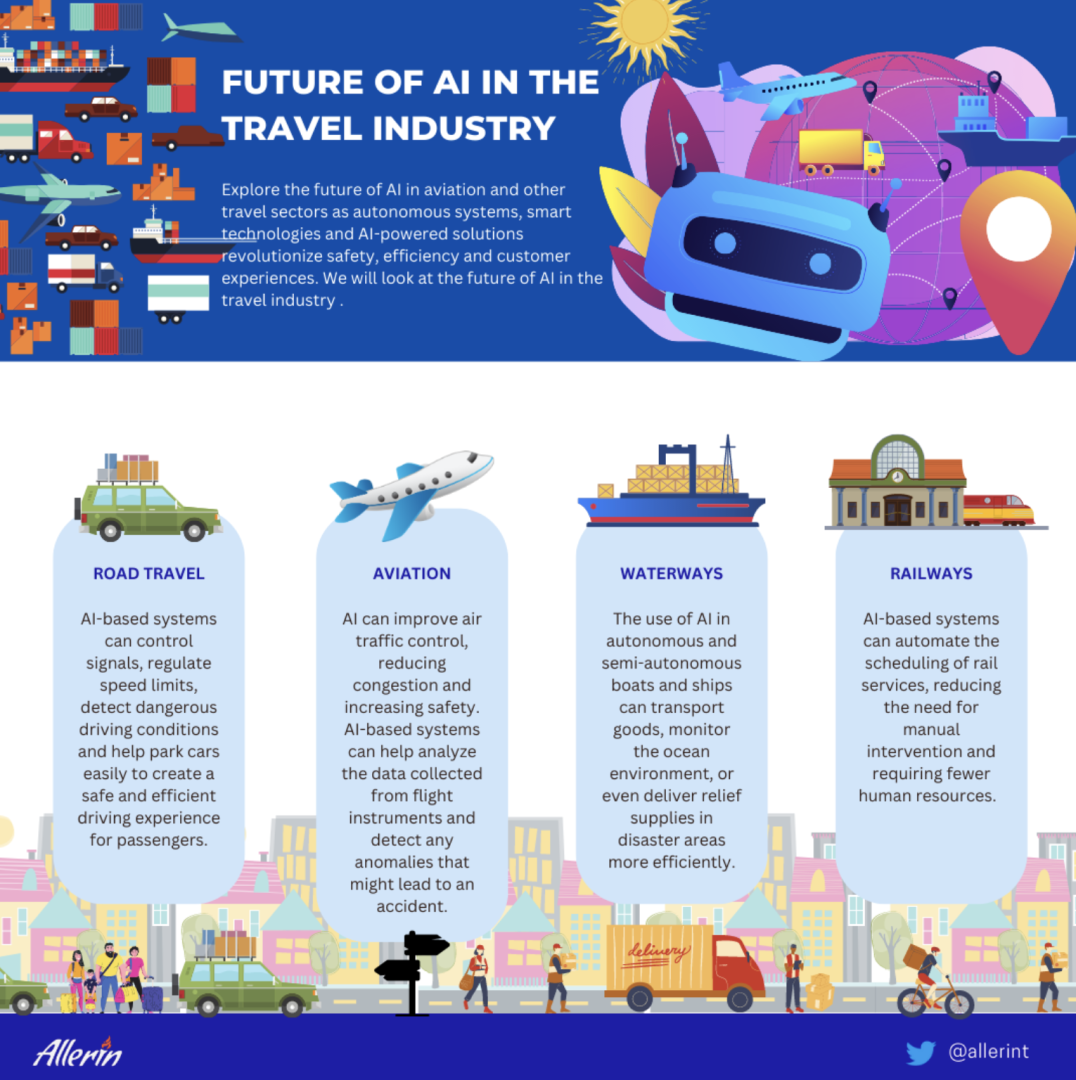Comments
- No comments found

Artificial intelligence (AI) is disrupting the travel industry by promoting speed, efficiency, safety and accuracy.
The use of AI has already reshaped manufacturing, logistics, retail, e-commerce and healthcare. The travel industry is no exception.
Artificial intelligence is currently being used in the travel industry to increase efficiency and accuracy in the booking process and provide customers with personalized recommendations for their upcoming trips. But what does the future hold for AI in the travel industry? In this article, we will look at the future of AI in the travel industry and specifically focus on the future of AI in aviation.

Travelers using road transportation are already benefiting from AI, such as driverless cars and smart driving systems. Autonomous vehicles are expected to become increasingly popular in the coming years as they are safer and more efficient than human-driven vehicles.
Smart parking and driving systems will also be used to reduce traffic congestion by optimizing traffic flow. AI-based systems can control signals, regulate speed limits, detect dangerous driving conditions and help park cars easily to create a safe and efficient driving experience for passengers.
The use of AI in aviation can help improve efficiency and safety. AI-based systems can help pilots make better decisions faster, identify potential problems more quickly and avoid any dangerous situations.
Autonomous systems can be used to assist in the operation of planes and drones, as well as help with aviation maintenance and repair aspects. AI can also improve air traffic control, reducing congestion and increasing safety. Additionally, AI-based systems can help analyze the data collected from flight instruments and detect any anomalies that might lead to an accident.
The use of AI in autonomous and semi-autonomous boats and ships can transport goods, monitor the ocean environment, or even deliver relief supplies in disaster areas more efficiently. Autonomous vessels can be directed by remote control and equipped with sensors to detect objects and environmental conditions.
Lastly, AI can be applied to rail transportation to increase efficiency, reduce operating costs and improve passenger experience. For example, AI-based systems can automate the scheduling of rail services, reducing the need for manual intervention and requiring fewer human resources. AI-based systems can also detect sleepers and obstacles on the track, ensuring safe and timely arrivals.
Furthermore, AI-based systems can help to improve customer service by enabling automated ticketing and providing passengers with real-time information about their journeys. This can help to reduce the time passengers spend in ticket queues and increase overall satisfaction with rail services.
The use of AI in aviation, road, water and rail transportation is set to shift the way these industries offer services to travelers. AI-based systems can help to improve safety, efficiency and customer service across these industries, leading to a more satisfactory experience for travelers and customers alike. As AI technology continues improving, its potential applications in the transportation industries will surely expand.
Naveen is the Founder and CEO of Allerin, a software solutions provider that delivers innovative and agile solutions that enable to automate, inspire and impress. He is a seasoned professional with more than 20 years of experience, with extensive experience in customizing open source products for cost optimizations of large scale IT deployment. He is currently working on Internet of Things solutions with Big Data Analytics. Naveen completed his programming qualifications in various Indian institutes.
Leave your comments
Post comment as a guest